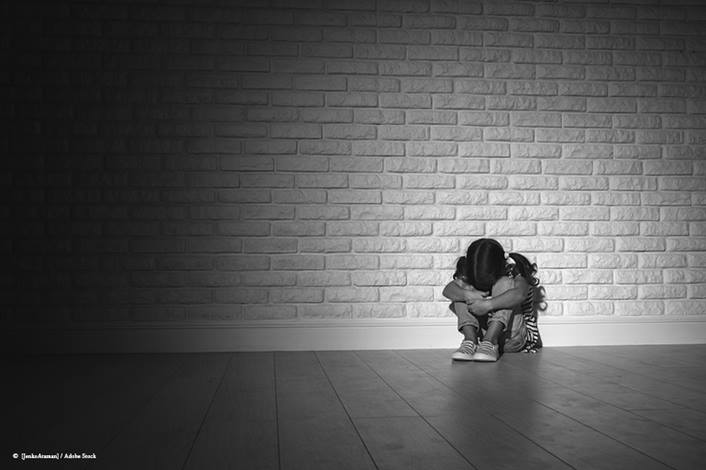The number of cases of child abuse has risen by a quarter over the last year; it’s thought churches could play a central role in combatting cruelty.
The National Society for the Prevention of Cruelty to Children (NSPCC) is urging the government to invest more funding in the early prevention of child abuse.
It comes after the organisation reviewed data from police forces and found over 26-thousand cases of adults neglecting, mistreating, or assaulting children.
On average, the organisation sees around 72 reports a day in the UK alone.
Sam Tarling is a social worker and consultant in the field. As a practicing Christian, she says people of faith need to be at the front and centre of combatting child mistreatment.
She told Premier Christian News: “It’s about community for me. I believe in doing church; I’m not somebody that kind of just looks at church as going on a Sunday.
“I believe, absolutely, that we are in a position where that early help can be really helpful.
“I also think that communities like churches are often much more able to reach people and give a message that is heard that often statutory agencies can’t do.
“I’m very cautious of saying that I’m social worker, because of how that is potentially perceived, and so as a professional working in that industry, there’s often some challenges around people listening or hearing what I’m saying.
The church can be really impactful in terms of the support that they give and the kind of messaging they give, but I also think that there are amazing projects within kind of church communities.”
As the cost of living rises, three quarters of people have reported that they’re worried about making ends meet.
Although there is a correlation between poverty and abuse, the two do not necessarily go hand in hand.
Sam is urging people not to dismiss themselves as abusive or neglectful parents for going through financial hardship, encouraging them to lean on the church.
She continued: “I want families to hear that if they’re struggling financially, that does not mean that they are neglecting their children.
“That means they are struggling financially.”
“If they’re making choices having to go to food banks, that is not neglect.”
The number of cases of child abuse has risen by a quarter over the last year; it’s thought churches could play a central role in combatting cruelty.
The National Society for the Prevention of Cruelty to Children (NSPCC) is urging the government to invest more funding in the early prevention of child abuse.
It comes after the organisation reviewed data from police forces and found over 26-thousand cases of adults neglecting, mistreating, or assaulting children.
On average, the organisation sees around 72 reports a day in the UK alone.
Sam Tarling is a social worker and consultant in the field. As a practicing Christian, she says people of faith need to be at the front and centre of combatting child mistreatment.
She told Premier Christian News: “It’s about community for me. I believe in doing church; I’m not somebody that kind of just looks at church as going on a Sunday.
“I believe, absolutely, that we are in a position where that early help can be really helpful.
“I also think that communities like churches are often much more able to reach people and give a message that is heard that often statutory agencies can’t do.
“I’m very cautious of saying that I’m social worker, because of how that is potentially perceived, and so as a professional working in that industry, there’s often some challenges around people listening or hearing what I’m saying.
The church can be really impactful in terms of the support that they give and the kind of messaging they give, but I also think that there are amazing projects within kind of church communities.”
As the cost of living rises, three quarters of people have reported that they’re worried about making ends meet.
Although there is a correlation between poverty and abuse, the two do not necessarily go hand in hand.
Sam is urging people not to dismiss themselves as abusive or neglectful parents for going through financial hardship, encouraging them to lean on the church.
She continued: “I want families to hear that if they’re struggling financially, that does not mean that they are neglecting their children.
“That means they are struggling financially.”
“If they’re making choices having to go to food banks, that is not neglect.”
SOURCE: PREMIER CHRISTIAN NEWS

